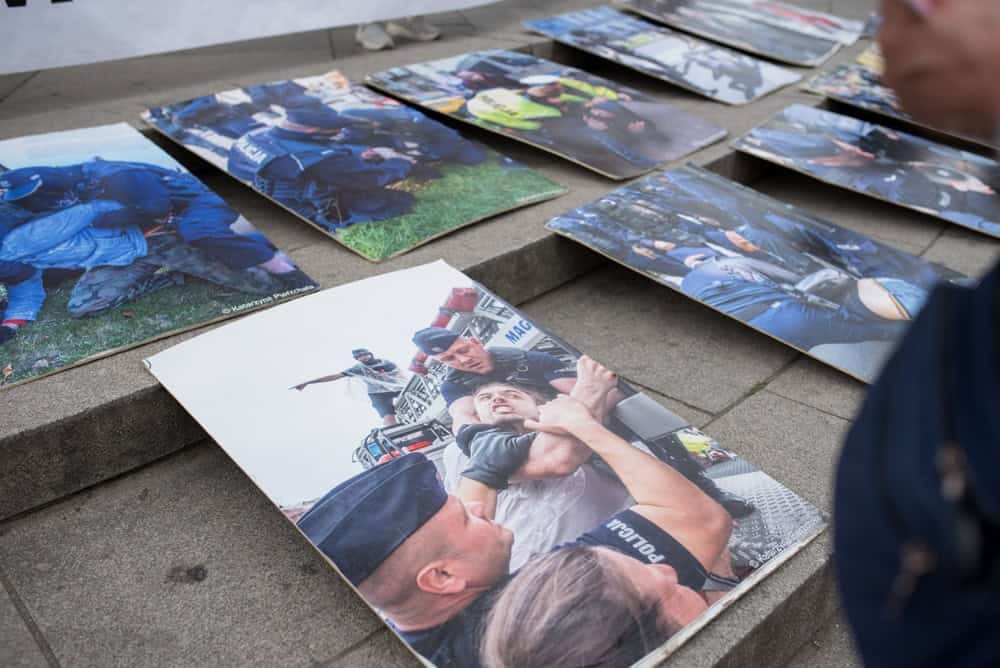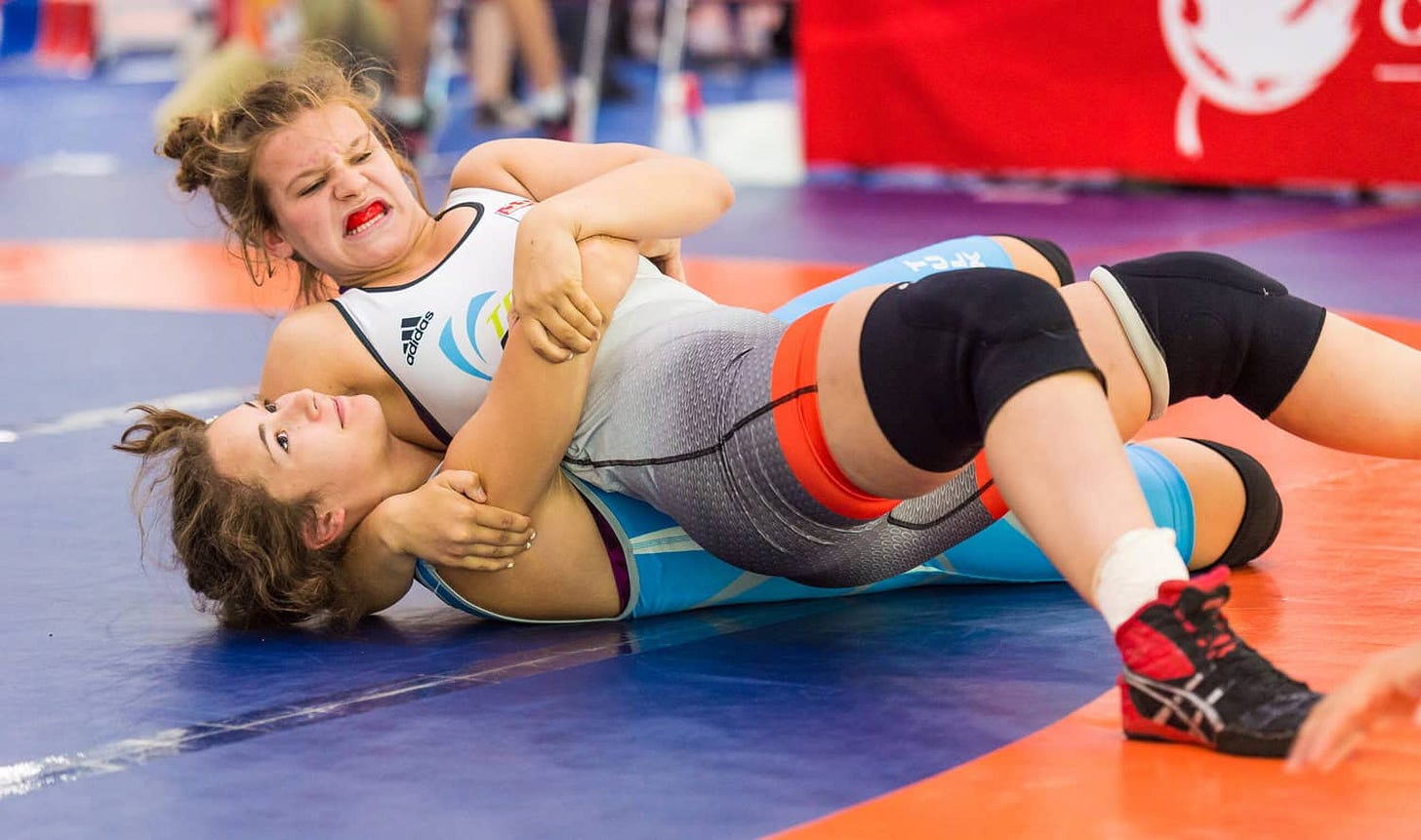A little bit of an identity crisis
The nuances of wrestling, algorithms, and getting dressed for fashion school
In wake of the arrest of Columbia University graduate Mahmoud Khalil, we’re reflecting on a turning point in free speech on campus prefigured by some recent articles at Public Seminar, including Olúfẹ́mi O. Táíwò in conversation with Cresa Pugh and Julie Beth Napolin on Palestine, strikes, and university capture; Jessica Storey-Nagy on the discursive stylings of an authoritarian campus administration; and Adam Tooze on the political economy behind “the panicked control-freakery” of Columbia’s response to student encampments.
In new publications this week, Agnieszka Kościańska’s research in Poland offers crucial insight into how the violent policing of minorities can be explained away by the rest of the populace.
Other authors offer the respite of humor amidst uncertainty. Hannah McIntyre investigates the dilemmas of fashion students getting dressed for class. Justin Muchnik presents a philosophical quandary in American wrestling. And Marisol Aveline Delarosa asks ChatGPT who, exactly, her online ad algorithm thinks it’s targeting.
Who Does My Algorithm Think I Am?
Marisol Aveline Delarosa
My phone thinks I might have a dopamine addiction. While scrolling social media recently, I paused on a video advertisement depicting a woman scrolling on her phone, lounging on the couch, and slamming down her laptop in frustration. It may as well have been security footage from my own apartment, except that her video was overlaid with text asking questions about the viewer.
Have you been experiencing a lack of motivation? Excessive time in passive activities? Inability to focus? Over-reliance on instant gratification?
I more or less agreed with my phone’s implicit assessment of my mental state.
At Parsons, Getting Dressed Is Extra Homework
Hannah McIntyre
In my first semester at Parsons School of Design, I sat in the library, dazedly looking around at other students’ outfits. I noticed someone wearing a denim beret with a long-sleeved white shirt that had images of bones, forming a skeleton laid on their back. They wore a long black skirt made of pretty lace— juxtaposed with aggressive rips and pins with vulgar phrases. The look was completed with white platform boots. The student looked like one of my old Monster High dolls—one that had grown angrier at the world and more confident with age.
Violence and Policing Minorities
Agnieszka Kościańska
Before the 2020 pro-choice protests [in Poland], the police maintained a high level of social trust despite a series of cases of excessive violence reported by the media. For instance, in 1996 the police entered a Romanian Roma camp in Warsaw at 2 a.m., demolishing it and arresting everybody they managed to find, who were then deported. Although some activists and politicians protested, public opinion supported the action: three-quarters of Warsaw residents supported the raid, and half believed it was a good idea to clear the camp in the middle of the night.
The Rare Beauty of Folkstyle Wrestling
Justin Muchnick
To an outsider, the sport of wrestling might seem like a monolith—a muscular clump of writhing barbarity. But on January 17, when the members of the National Collegiate Athletic Association (NCAA) made the landmark decision to add women’s wrestling as an official championship sport, they faced a procedural question with subtle but important philosophical implications: What “style” will the women compete in?







